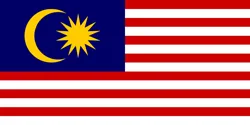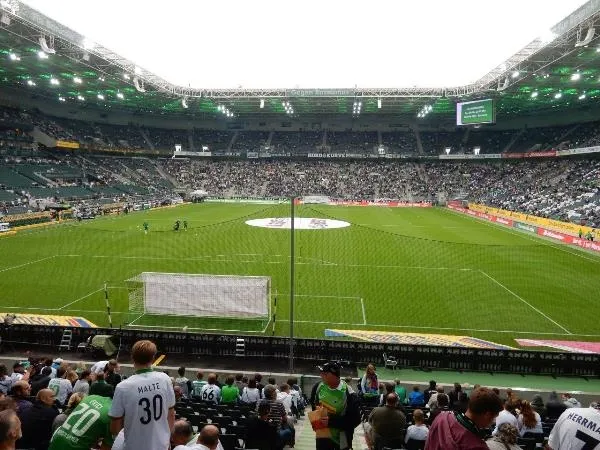in the 80s Borussia was unable to improve on the achievements from the previous decade and lost ground to the previous adversaries from Munich. Because of the low ticket revenues from the tiny Bokelbergstadion the club was forced to sell top performers repeatedly and again. However, it was still feasible to frequently settle within the top third of Bundesliga and participate in the championship battle. In the season of 1980-81, many former players and performers quit the club, such as Karl Del'Haye who is considered as the first player recruited with FC Bayern Munich in hostile intention. Borussia signed together with Wolfram Wuttke to only strike players. They also replaced Wolfgang Kleff in goal to Uli Sude. The team reached the sixth position in the league table. The record in sports did not improve over the next two seasons. In the seventh position in 1982, Borussia did not participate in international tournaments. In the next season, Uwe Kamps guarded the goal for the first time and remained a goalkeeper for a long time.
In the 1983-84 season, Borussia competed in the finals for the championship. Alongside Bernd Krauss and Michael Frontzeck and Uli Borowka Borussia were a group of dedicated players who were able to play for a long period with success in the Borussia club. In the end, they were at the bottom of the table, with VfB Stuttgart and Hamburger SV in third position. This was for the very first time ever in history of the Bundesliga that three clubs sat in the top three spots on the same matchday. In the same season Monchengladbach also was beaten in their DFB-Pokal final against Bayern Munich on penalties, Lothar Matthaus and Norbert Ringels both missing the spot, after the game had ended in a draw at 1-1. Matthaus later became a member of Bayern Munich for a then-record price that was 2.25 million DM and a few supporters to ask if Matthaus had purposely missed his penalty.
In the 1984-85 campaign, Borussia scored 10-0 on Matchday 8 in the 1984-85 season against Eintracht Braunschweig which is so far the only two-digit win within Bundesliga history. The semi-final game of the German Cup VfL met again in Bayern Munich. After there were no goals scored during the regular season at Bayern Munich's Olympiastadion, Soren Lerby converted an injury-time penalty against Borussia goalkeeper Ulrich Sude in the 101st minute. It was the only goal of the night which meant that Borussia were unable to enter the final.
The 1985-86 season was not a time of sports moments in the Bundesliga and the club finished fourth. Borussia Monchengladbach was unable to secure an easy 5-1 victory over Real Madrid on 27 November 1985 in Dusseldorf (11 December 1985) after which they lost to 4-0 in Madrid and then dropped out of the UEFA Cup.
The 1986-87 season saw yet another change in the coach. Jupp Heynckes made an announcement about his move into Bayern Munich. Bayern Munich has nominated Wolf Werner as the new coach. The end of the season Borussia finished in the third spot on the list for the final time this decade. an UEFA Cup place. It was the Association of German Sports Journalists elected Uwe Rahn as the Player for the year. Another time, Borussia made it to the semi-finals of the DFB Cup. This time, however, Borussia was defeated by the subsequent DFB Cup winner Hamburger SV. On the 22nd April in 1987 Borussia fell to the Scottish representatives Dundee United after defeat at home in Bokelberg in the UEFA Cup semi-final. The Bokelberg defeat was not the only loss in the history of a European Cup game on the Bokelberg. Following the demise of Jupp Heynckes in the year 1964, the time of continuous engagements for the head coaches ended. The initial 23 years between 1964 until 1987, Borussia was home to just three coaches. After after the demise of Jupp Heynckes Borussia was able to hire 16 coaches up to 2008 except for interim solutions. Werner's resignation on the 21st of November, 1989 that led to the first dismissal prematurely of a coach from Borussia even if they were a coach. Three coaches later on failed to make it to Monchengladbach for more than three years: Bernd Krauss (1992-1996), Hans Meyer (1999-2003) and Lucien Favre (2011-2015).
In the following season Borussia hired Stefan Effenberg, a player who was a long-time player and a success with the team. Borussia ended the season in seventh position and therefore was not able to participate in international tournaments. The beginning of the 1990s saw the trend of a major downward. In the wake of the decline in sports the number of fans at the Bokelberg decreased in the very first instance. The season of 1989-90 was already underway. the team was struggling to avoid being relegated. In the years following, Borussia was placed in the middle in the Bundesliga. In 1991-92, Borussia had another successful cup season. In the Cup semi-final , goalkeeper Uwe Kamps saved all four penalties of players from Bayer 04 Leverkusen. Borussia made it to the final. The final, on May 23, 1992, saw Monchengladbachers fall to the team from the second division Hannover 3:4 after penalties.
In 1993 the club signed player Heiko Herrlich as well as Patrik Andersson. In 1994 Stefan Effenberg came back as a player for Borussia Monchengladbach between 1987 and 1990. Under the guidance of coach Bernd Krauss, they managed an enthralling return with the Bundesliga top of the line. In 1994-95, Borussia won the first trophy won by Borussia since 1979. In that year, they took home the DFB-Pokal with a 3-0 win against VfL Wolfsburg. Borussia also won the Supercup against German Champions Borussia Dortmund just a couple of months afterward.
The 1980s saw Borussia did not have the ability to achieve the success that they had won in the previous decade. They lost ground to the previous rivals from Munich. Because of the absence of revenue from tickets at the Bokelbergstadion the club was forced to sell top performers repeatedly and again. However, it was still feasible to frequently settle at the higher end of the Bundesliga and even participate in the title race. In the 1980-81 season , a number of veterans and players left the club, such as Karl Del'Haye who is considered the first player to be hired with FC Bayern Munich in hostile intention. Borussia signed together with Wolfram Wuttke, but only to strike players. They also replaced Wolfgang Kleff in goal to Uli Sude. The team finished the season in sixth position in the league table. The record in sports did not improve during the subsequent two seasons. In the seventh position in 1982, Borussia was not able to participate in international tournaments. In the next time, Uwe Kamps guarded the goal for the first time and was a long-time goalkeeper for a long time.
In the 1983-84 season, Borussia competed to win the league. Alongside Bernd Krauss and Michael Frontzeck and Uli Borowka Borussia was a team of committed players who were able to play for a long period and successfully with the team. They finished in third place, just with VfB Stuttgart and Hamburger SV in third position. This was for the very first time ever in history of the Bundesliga that three clubs sat in the table on the same matchday. The same season, Monchengladbach also fell in its DFB-Pokal final against Bayern Munich on penalties, Lothar Matthaus and Norbert Ringels both missing the spot, after the game had ended at 1-1. Matthaus later became a member of Bayern Munich for a then-record cost that was 2.25 million DM and a few fans to wonder if Matthaus was deliberately omitted from his penalty.
In the 1984-85 campaign, Borussia was able to win 10-0 on Matchday 8 in the 1984-85 season against Eintracht Braunschweig which is so far the most recent two-digit win within Bundesliga history. When the semifinals were played in the German Cup VfL met again in Bayern Munich. After no goals were scored during the regular season at Bayern Munich's Olympiastadion, Soren Lerby converted an injury-time penalty against Borussia goalkeeper Ulrich Sude in the 101st minute. This was the sole goal of the game and, as a result, Borussia were unable to enter the final.
The 1985-86 season was not a time of sports highlight in the Bundesliga and the club finished fourth. Borussia Monchengladbach was unable to secure five goals to Real Madrid on 27 November 1985 in Dusseldorf (11 December 1985) after which they lost to 4-0 in Madrid and then dropped out of the UEFA Cup.
The 1986-87 season saw yet another change in the coach. Jupp Heynckes made an announcement about his move into Bayern Munich. The club has appointed Wolf Werner as the new coach. The end of the season Borussia was in third spot on the list for the final time this decade. an UEFA Cup place. In the Association of German Sports Journalists elected Uwe Rahn the player for the year. Another time, Borussia made it to the semi-finals of the DFB Cup. However, this time Borussia fell short against Hamburger SV, the secondary DFB Cup winner Hamburger SV. On the 22nd of April, 1987 Borussia fell to the Scottish representatives Dundee United after defeat at home in Bokelberg in the UEFA Cup semi-final. The Bokelberg defeat was not the only time Borussia had lost in the history of a European Cup game on the Bokelberg. Following the demise of Jupp Heynckes, the period of long-term commitments to head coaches came to an end. The initial 23 years between 1964 until 1987, Borussia did not have more than three teachers. After his departure in 1987 Borussia had hired 16 new coaches from 2008 and only had interim solutions. Werner's dismissal on November 21, 1989, which was the first time that a coach was dismissed prematurely. coaches at Borussia in any way. Only three coaches from the following years managed to be successful in Monchengladbach for more than three years: Bernd Krauss (1992-1996), Hans Meyer (1999-2003) and Lucien Favre (2011-2015).
The following season, Borussia hired Stefan Effenberg, a player who was a long-term employee and a success with the team. Borussia ended the season seventh and was unable to participate in international tournaments. The beginning of the 1990s saw an eminent downward trend. Due to the declining popularity of sports the number of people who viewed at the Bokelberg decreased at the beginning of each season. The season of 1989-90 was already underway. Borussia was fighting the possibility of relegation. The following seasons saw Borussia was placed in the middle in the Bundesliga. The 1991-92 season Borussia had another successful cup season. In the Cup semi-finals, goalkeeper Uwe Kamps was able to hold on to penalties all four penalties of players from Bayer 04 Leverkusen. Borussia made it to the final. The final was played on the 23rd of May 1992 witnessed the Monchengladbachers fall to the club from the second division Hannover 3:4 in penalties.
In 1993 the club signed player Heiko Herrlich as well as Patrik Andersson. In 1994 Stefan Effenberg came back as a player for Borussia Monchengladbach from 1987 until 1990. Under the guidance of coach Bernd Krauss, they managed an improved connection with the Bundesliga top of the line. In 1994-95, Borussia won the first trophy won by Borussia since 1979. In that year, they took home the DFB-Pokal by a 3-0 win against VfL Wolfsburg. Borussia won the Supercup against German winners Borussia Dortmund a few months afterward.



 ENG
ENG MYS
MYS 简体中文
简体中文






















 SUI
SUI JPN
JPN FRA
FRA GER
GER AUT
AUT DEN
DEN ALG
ALG
 IRL
IRL AUS
AUS LUX
LUX
 Dick Advocaat (2 Nov 2004 – 18 April 2005)
Dick Advocaat (2 Nov 2004 – 18 April 2005) Jörn Andersen (interim) (14 May 2006 – 30 June 2006)
Jörn Andersen (interim) (14 May 2006 – 30 June 2006) Celtic
Celtic Viktoria Plzeň
Viktoria Plzeň Red Star Belgrade
Red Star Belgrade Martin Dahlin
Martin Dahlin Wesley Sonck
Wesley Sonck Juan Arango
Juan Arango